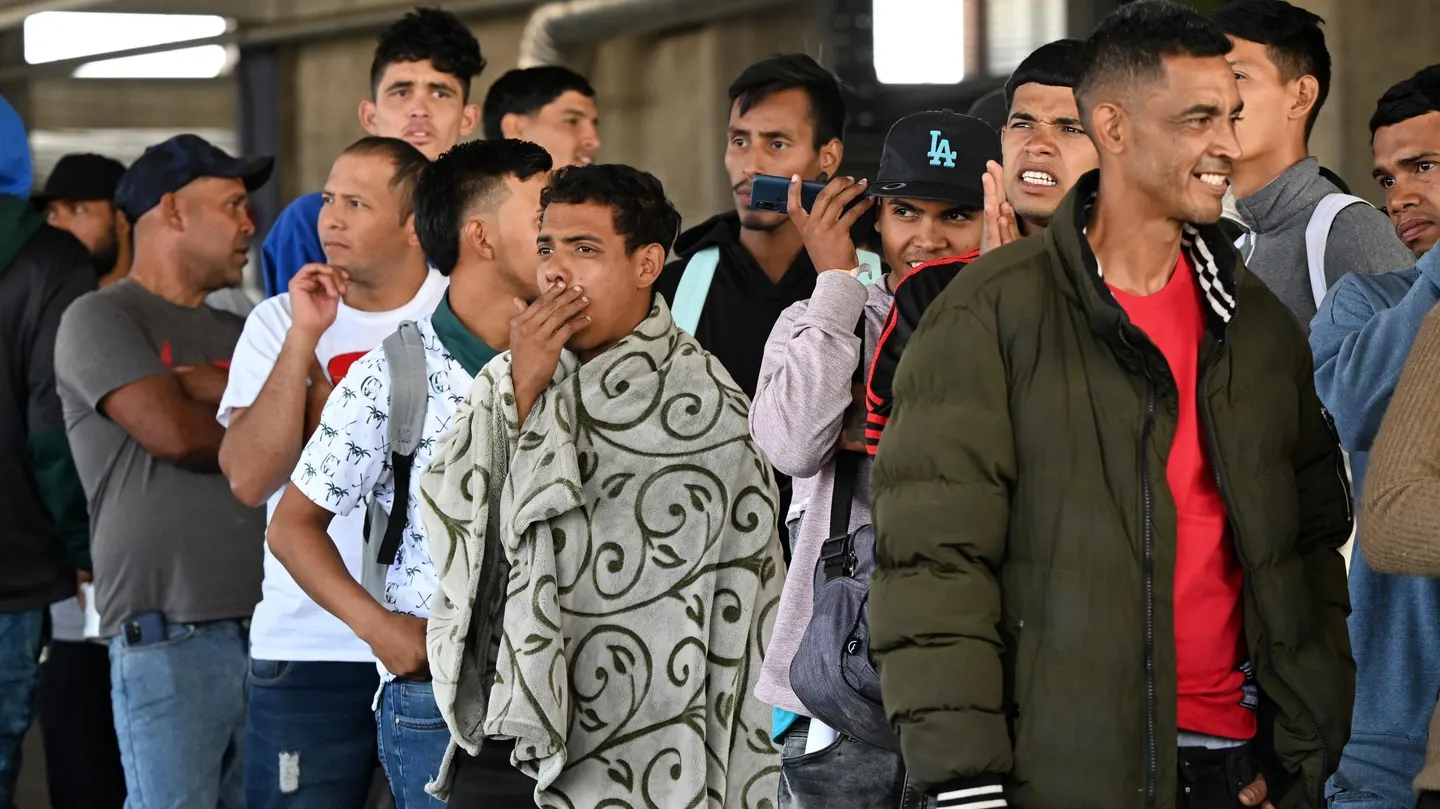- Home
- Billionaires
- Investing Newsletters
- 193CC 1000
- Article Layout 2
- Article Layout 3
- Article Layout 4
- Article Layout 5
- Article Layout 6
- Article Layout 7
- Article Layout 8
- Article Layout 9
- Article Layout 10
- Article Layout 11
- Article Layout 12
- Article Layout 13
- Article Layout 14
- Article Sidebar
- Post Format
- pages
- Archive Layouts
- Post Gallery
- Post Video Background
- Post Review
- Sponsored Post
- Leadership
- Business
- Money
- Small Business
- Innovation
- Shop
Recent Posts
Denver Cuts Services to Fund Migrant Shelter

In a move that underscores the strain of the migrant crisis gripping the nation, the city of Denver is implementing drastic measures to redirect funds towards sheltering thousands of migrants pouring into the city. With an estimated 38,000 individuals arriving from the southern border in just over a year, Denver finds itself at the forefront of a humanitarian challenge that demands urgent attention.
Denver Mayor Mike Johnston announced a series of budget cuts aimed at reallocating resources to address the pressing needs of the migrant population. Among the measures outlined, Denver Motor Vehicle offices will undergo rotating weeklong closures, recreation center hours will be reduced, and park services will face cutbacks. These austerity measures are projected to save $5 million, which will be directed towards providing shelter for the influx of migrants.
The decision comes in the wake of a failed border security deal in the U.S. House, prompting Mayor Johnston to assert the necessity of these cuts. With a looming budget shortfall of potentially $180 million in 2024, the city faces tough choices in balancing fiscal responsibilities with humanitarian imperatives.
The surge in migrant arrivals can be attributed in part to initiatives by Texas Governor Greg Abbott, who initiated free bus rides for migrants to Democratic-run cities like Denver. This influx has strained Denver’s capacity to provide adequate shelter, resulting in the city accommodating over 3,500 migrants in hotels, shelters, and bridge housing.
Mayor Johnston has been vocal in his criticism of Republican lawmakers, accusing them of failing to adequately support migrants and the cities hosting them. He specifically singled out former President Donald Trump for his role in derailing the border deal, attributing the failure to Trump’s intervention with House Republican leadership.
The financial burden of supporting migrants has been substantial for Denver, with the city spending a staggering $42 million between December 2022 and the present. While the state of Colorado has provided some reimbursements, additional funding from the Department of Homeland Security has been crucial in sustaining these efforts.
Denver’s plight is further exacerbated by its status as the city with the most newly arrived migrants per capita in the country. The influx began in 2022 following Governor Abbott’s transportation initiative, with nearly 30,000 migrants, predominantly from Venezuela, seeking refuge in Denver. Tent villages have sprung up on the city’s streets, highlighting the urgent need for comprehensive solutions to address the humanitarian crisis.
Mayor Johnston’s warning of a “breaking point” reflects the escalating challenges faced by Denver as it grapples with limited resources and infrastructure strain. Recognizing the limitations within the city, Denver has offered to subsidize bus tickets for migrants seeking relocation to other cities.
The repercussions of the migrant crisis extend beyond Denver, with cities like New York and Chicago also grappling with significant arrivals. New York City Mayor Eric Adams recently filed a lawsuit against transportation companies involved in Texas’s migrant relocation program, seeking substantial damages to offset the city’s expenditures on migrant sheltering.
The strain of the crisis was felt acutely in New York City, where budget cuts impacted essential services such as universal pre-K expansion, police hirings, and sanitation. While Mayor Adams has cautioned of further belt-tightening measures in 2024, some cuts were reversed earlier this year, indicating the ongoing struggle to strike a balance between fiscal prudence and humanitarian obligations.
As Denver navigates the complexities of the migrant crisis, the city remains committed to upholding its values of compassion and inclusivity. However, the challenges ahead underscore the urgent need for collaborative, multifaceted approaches to address the burgeoning humanitarian needs while ensuring the sustainability of essential city services.
Recent Posts
Categories
- 193cc Digital Assets2
- 5G1
- Aerospace & Defense46
- AI37
- Arts3
- Banking & Insurance11
- Big Data3
- Billionaires449
- Boats & Planes1
- Business328
- Careers13
- Cars & Bikes76
- CEO Network1
- CFO Network17
- CHRO Network1
- CIO Network1
- Cloud10
- CMO Network18
- Commercial Real Estate7
- Consultant1
- Consumer Tech180
- CxO1
- Cybersecurity68
- Dining1
- Diversity, Equity & Inclusion4
- Education7
- Energy8
- Enterprise Tech29
- Events11
- Fintech1
- Food & Drink2
- Franchises1
- Freelance1
- Future Of Work2
- Games141
- GIG1
- Healthcare78
- Hollywood & Entertainment186
- Houses1
- Innovation42
- Investing2
- Investing Newsletters4
- Leadership65
- Lifestyle11
- Manufacturing1
- Markets20
- Media193
- Mobile phone1
- Money13
- Personal Finance2
- Policy567
- Real Estate1
- Research6
- Retail1
- Retirement1
- Small Business1
- SportsMoney33
- Style & Beauty1
- Success Income1
- Taxes2
- Travel10
- Uncategorized8
- Vices1
- Watches & Jewelry2
- world's billionaires418
Related Articles
Netflix Secures 2027 and 2031 Women’s World Cup Rights
Netflix has clinched an exclusive streaming deal for the next two FIFA...
By 193cc Agency CouncilDecember 20, 2024Meta Fixes Facebook, Instagram, WhatsApp Outages
Meta, the parent company of Facebook, Instagram, and WhatsApp, faced significant outages...
By 193cc Agency CouncilDecember 12, 2024Roy Jones Jr. Confident He Can Beat Jake Paul, Issues Challenge
Boxing legend Roy Jones Jr. has made waves by declaring that he’s...
By 193cc Agency CouncilDecember 11, 2024Tsunami Warning Lifted After 7.0 Quake Off California Coast
A tsunami warning that affected large portions of northern California and Oregon,...
By 193cc Agency CouncilDecember 6, 2024















Leave a comment